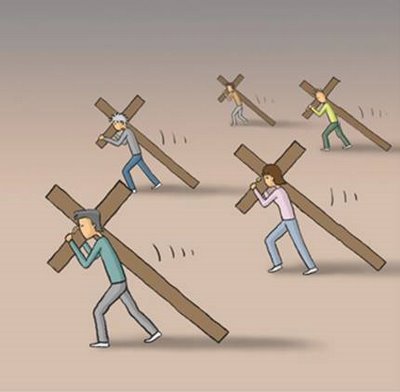Last week I tackled the grievances of the Copts of the parish of Maghagha and Adawa in Minya, Upper Egypt, regarding the building and renovation of places of worship. I cited two cases of flagrant discrimination against Copts in this respect, and showed that the unjust manner in which Coptic congregations are deprived of their right to decent churches or buildings that house community services amounts to no less than ‘persecution’. Today I resume citing the cases of persecution inflicted upon the Copts of Maghagha and Adawa.
 The church of the Holy Virgin and the archangel Gabriel in the village of Safaniya in Adawa has no toilets. Apart from the fact that depriving people of toilets is hideously inhuman, how are old persons, diabetics, or children expected to relieve themselves? It is an utter disgrace for this country that such a problem should occur so frequently where churches are concerned. In principle, how can a building be erected without toilets? And even if those in charge of the building for some inexplicable reason overlooked the building of toilets then decided to correct the error later, why should they be denied a permit to do that? What justification does any official have to negotiate the matter as though it were not necessary, to delay licensing the building of the toilets, or to bargain against that? Did we ever hear about a mosque built without toilets or facilities for ablution? If anything, this proves that representatives of the administration or authorities are the main source of the grievances and vexation to which Copts are subjected. Worse, the message propagated to the public is that it is perfectly all right to harass the Copts, a message easily picked up and put into effect by ignorant people and fanatics. Then we ask ourselves what could be the reason for the sectarian inflammation we suffer from.
The church of the Holy Virgin and the archangel Gabriel in the village of Safaniya in Adawa has no toilets. Apart from the fact that depriving people of toilets is hideously inhuman, how are old persons, diabetics, or children expected to relieve themselves? It is an utter disgrace for this country that such a problem should occur so frequently where churches are concerned. In principle, how can a building be erected without toilets? And even if those in charge of the building for some inexplicable reason overlooked the building of toilets then decided to correct the error later, why should they be denied a permit to do that? What justification does any official have to negotiate the matter as though it were not necessary, to delay licensing the building of the toilets, or to bargain against that? Did we ever hear about a mosque built without toilets or facilities for ablution? If anything, this proves that representatives of the administration or authorities are the main source of the grievances and vexation to which Copts are subjected. Worse, the message propagated to the public is that it is perfectly all right to harass the Copts, a message easily picked up and put into effect by ignorant people and fanatics. Then we ask ourselves what could be the reason for the sectarian inflammation we suffer from.
Back to the appalling problem of the Safaniya church. In January 2006 the church officially applied to Minya governor for a permit to build toilets. It is today close to four years since the application was submitted and still no permit. It goes without saying that if those in charge of the church had the temerity to go ahead and build the toilets anyway, all the gates of hell would break loose. The Copts would be accused of conducting illegal construction, a Muslim mob would attack the church and assault the Copts in the neighbourhood, and the church would be promptly closed by the security authorities on the pretext that it has become the cause of sectarian violence. Next, the authorities would predictably don the wings of angels and engineer a ‘reconciliation’ between the Copts and Muslims. The scenario is all too too familiar.
In Nazlet Ramadan, Adawa, the church of the Archangel Michael faces another problem which is also four years old…and going. The church is small and old; one of its walls was built in mud brick and is now deteriorated and near-collapse. Since the congregation has swelled over the years, those in charge of the church applied to Minya authorities for permission to replace the mud brick wall with a modern brick one and to add a second floor to the present building. Again, four years on, no permit has been approved. Whenever the church authorities follow up the matter with Minya governorate they are told: “We have no reply from Cairo”. Given that permits for renovation and restoration should be approved by the local governors not by Cairo, the referral of the application to Cairo for approval is a grave misstep. The fact that Cairo has given no reply in the span of four years is a graver misstep. But if the application was never referred to Cairo in the first place and officials are merely making this story up to sideline the matter, we are before a crime that warrants questioning and accountability.
These two incidents plus the two others presented in last week’s editorial, in addition to other cases which I plan to print in future articles, prove beyond doubt that the collective penalty inflicted on Copts amounts to definite persecution. Trouble is that the persecution of Copts is denied by officials and the public, left unchecked, placed on hold, then the same officials and public rise in shock and alarm once someone dares utter the phrase “persecution of Copts”.
Problems on hold:Persecution of Copts
Youseef Sidhom
Opinion
23:10
Saturday ,10 October 2009




